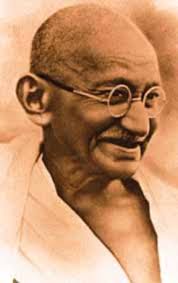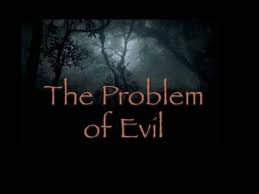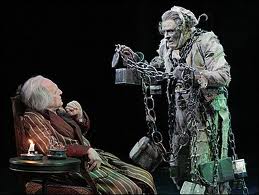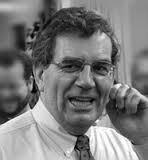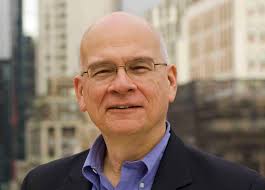The Lake Avenue Essays, # 1: The Missing Picture … Who I Am
There is never a good time for a father to die. I was thirteen when my dad died. That was in 1961; he was forty-eight. It was my dad, and it was the absolute worst time.
My brother had joined the Navy two months earlier, right out of high school. He had always been my dad’s favorite. Now, I thought, I would have my dad to myself. But I didn’t, and wouldn’t … of course.
The previous fall, I had started junior high—you know, that time when boys wonder about being a man and are confused about girls. I’d always had a crush on some girl, but now…. The guys would snicker, “Have you noticed Sue P.?” My dad and I would never have those conversations.
The school tried to encourage the special closeness of fathers and sons by sponsoring a breakfast that was coming up soon. All the guys would be there with their dads. I couldn’t go, even when my mom suggested I ask my Uncle Bud. I just wanted to hide, and there would be no escaping the shame.
Life moves on. But deep hurts don’t often move on. They’re just there, like some background dirge accompanying the good moments and happy times, like a void that refuses to be filled.
I became conscious of the void when I was six or seven, when I discovered the family pictures in a big drawer in the old secretary by the front door. The drawer was so heavy that I had to ask my mom to take it out for me. The pictures were mostly loose, mostly black and white, though some were sepia-toned. There was a painted high school graduation photograph of my Aunt Dee. She was beautiful. There were pictures of family and friends. What most caught my attention were those of my brother.
One picture had him standing by a coffee table with a huge birthday cake and one big candle. In another, he was perhaps a year-and-a-half, sitting on my dad’s lap, pecking away for all the world as though intent on writing a composition. My dad’s face was beaming, obviously proud.
But one picture was missing. I remember more than once going back to look for it in that big drawer, but I never found it. I never asked about it. I was afraid of the answer. The missing picture was the one I was sure had to be there, somewhere—the picture of just me and my dad.
The years moved on. My life became a question whose answer was self-interpreted. I began to conclude what a boy without guidance must: I didn’t matter to my dad. So, who am I?
1968 came. Hope was assassinated and I got a letter from the president: “Greeting….” I knew where I was going (Vietnam), and I did. Would I be a man? When you don’t know who you are, such tests of manhood prove nothing. I stood my ground, fought back, got wounded, came home. The question was still there.
Life went tumbling on. In the deep inner workings that seek to justify existence, I told myself I was better than my brother. Everything proved it: Michelle and I got married in 1970, we became Christians, went to Bible school and became missionaries, had three kids. I was a teacher. I was a church leader and counselor. I was looked up to. Yet, something was unsettling me. As I counseled guys, I found them confused, struggling with a private picture of God as judge, never smiling, always demanding, never satisfied. Their struggle was familiar, for I saw that same God. I recalled what A.W. Tozer wrote, that what comes to mind when you think of God is the most important thing about you…. So how could I help people trust God when I saw him like they did? I was playing church with these peoples’ lives. Like them, I was spending my life on a performance treadmill, chasing the smile of God.
I reasoned that God loves me, right? He always did what’s best. I’m going to heaven—he promised. But did God even like me, or just put up with me? Did I really matter to him? Did he value me at all?
In a moment of desperation, I got honest with God. It was 2006 or 2007—I’m certain of the moment if not the date. I sat at my desk and I cried out, “What do you really think of me, Lord? I have to know!”
God’s timing is not often early—and never late. With the words barely out of my mouth, a verse came to mind I had thought of only when doing church discipline: “My son, despise not the Lord’s discipline.… The Lord disciplines those he loves, as a father the son in whom he delights” (Proverbs 3:11,12).
Something was different. What was that last part? Delights? “Lord, you delight in me?” If ever in my life I received a “word from God,” this was it. My Father delights in me! Delight made love concrete.
How…? God for me had seemed distant, not much involved in my life, just up there, always watching, probably tired of my failures. I googled, “What does God think of his children?” I kept seeing the word “adoption,” a term Paul used to describe God taking people into his family. Adoption had meant little to me in Bible school. But now I knew: It’s not just a process, but a father’s perspective. No wonder Jesus taught his followers to call God “Abba.” Like a perfect earthly father, he had passionately anticipated the day he would adopt me. (The “pleasure” he felt in Ephesians 1:5). God wants to be with me!
We intuitively see God like our own parents, particularly our fathers. My picture of God was my dad! But God is not my dad. God’s discipline, all the troubles and disappointments are simply the proof of his delight in me, a message the Spirit brought to my mind as surely as the sun rises to a new day.
In a moment, God lifted the veil that had kept his true face hidden, and I heard him: “You saw only that missing picture. But you are my son. You are the man I delight in. And you will always be in the picture with me.”

